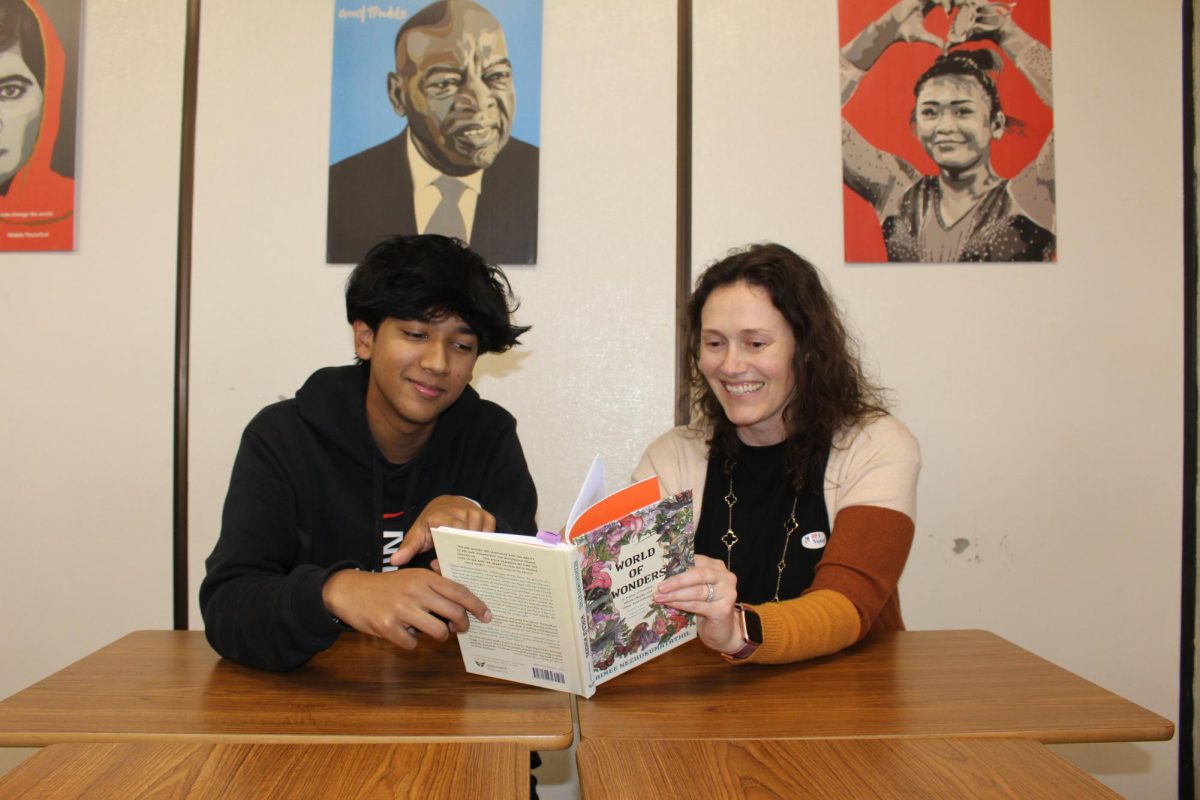Over the years, the Woodbridge High English department has strived to select texts that both challenge students intellectually and encourage them to reflect more deeply on a personal level.
English teacher and department chair Grant Davis notes the importance of considering all possible factors when deciding the best books to teach.
“[We are] giving students rigorous texts that are going to challenge them and push forth their ability to analyze literature, while at the same time, are those texts that students respond to,” Davis said.
Around this time of year, English teachers have the opportunity to submit proposals to replace certain works of literature with new texts that they believe would be better suited to their curriculum.
“We just have a conversation with [the teachers] about the text…once it has approval here at the site, it’s displayed here for parents to look at…then the school itself goes about the purchasing process and makes sure there’s enough copies of the book for students,” Davis said.
When English teachers are making decisions on what new literature to introduce, multiple factors are considered to determine why a book needs to be replaced.
“It really depends from text to text. There could be a curricular gap that’s missing, [or] a certain type of writing we need to teach. It’s also thinking about student engagement and representation,” Davis said.
Multiple students share their input on what should be considered when picking out literature content. Senior Rachel Khorashadi shares the sentiment that the selection should be diverse.
“One of the things that [Mr. Davis] says about high school is that the purpose of high school is to create well-rounded students. So our literature should reflect that,” Khorashadi said.
Senior Natalie Miller emphasizes how difficult it would be to find just one quality in a book that would appeal to every student reading it.
“Every book speaks to every person very differently,” Miller said. “You can be represented by so many different characters in so many different ways from so many of your background.”
Khorashadi adds how student engagement is key in the effectiveness of teaching a variety of literary texts.
“Students are most open to learning when they’re interested in the topics being taught,” Khorashadi said. “If they aren’t interested, they’re going to associate…the
learning process with a lot of negativity.”
English classes also serve the purpose of exposing students to books that they may never have pursued if not for school.
“I think a lot of the books I’ve been encouraged to read by others…have been some of the best reading experiences,” Miller said, giving the example of Please Look After Mom by Kyung-sook Shin.
Furthermore, providing students with engaging and relevant texts can open the door for impactful real world applications and insightful discussions.
“I noticed that when the Women, Life, Freedom protests were going on in Iran, there was a little bit more discussion about Iran in general as a topic,” Khorashadi said, referencing Persepolis by Marjane Satrapi.
Miller echoes the importance of allowing open discussion around literature.
“[In middle school] we’re taught to believe there’s one right answer or one way of interpreting a novel, when really it depends so much on the person,” Miller said. “It’s always interesting to hear other people’s takes on books.”
During the months of March and April, the English department will officially select new literature for next year.











